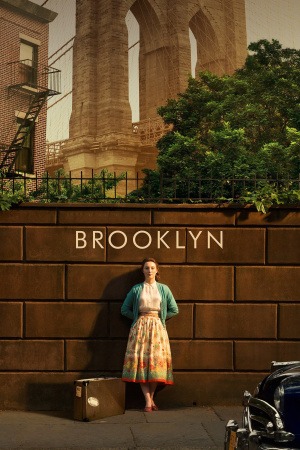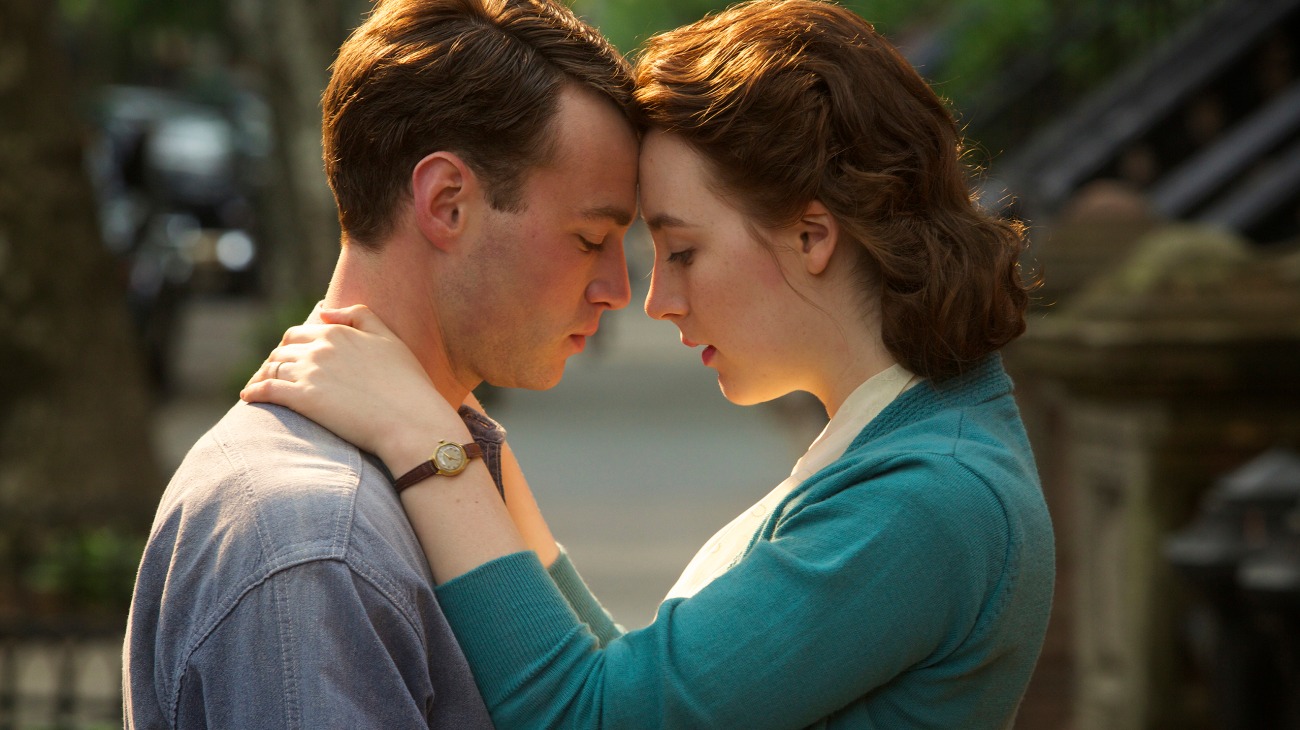
A review in brief
If I describe Brooklyn as the nicest movie to take your grandma to over the holidays, hopefully that implies two things. One of them, of course, is that the film has been carefully buffed and sanded by director John Crowley and screenwriter Nick Hornby (adapting a novel by Colm Tóibín) to make certain that it contains not a single challenging idea, character, plot development, or image. A more tastefully distilled, photogenic portrait of The American Immigrant Experience you'll be hard-pressed to find; this is plush enough to make In America look like an Abel Ferrara picture.
But the other thing I hope to imply is that the film is eerily, aggressively likable, and I mean that with none of the sardonic irony that could easily be implied. This is an old-fashioned kind of drama in the best way, where the filmmakers espouse a full and abiding affection for all of their characters, even the ones who in the context of the narrative are "wrong". To flesh out its wide range of humanity, from small town Ireland to the messy possibilities of 1950s New York, the film has assembled what surely must be the best ensemble cast of 2015, and at the top of the pile is Saoirse Ronan as Eilis, the young woman who leaves the stultifying comfort of her homeland to find terrors and liveliness (and sex - tastefully unerotic sex, but sex) across the Atlantic. It's a wonderfully retiring and interior performance Ronan gives, exuding mountains of unspoken thoughts through the simplest gestures and the lilt in her voice, and eight years after her astounding coming-out party with Atonement, it's the payoff for those of us who have been anxiously awaiting her first All-Time Great performance.
The only thing that holds it back is that it has to take place in a movie that is magnificently unwilling to make any demands of its protagonist. We get to know Eilis too well to think of her as a passive vessel, but that's basically all the script asks her to be. She simply floats from one minute, instantly-resolved conflict to the next, never having to fight, never having to make a hard choice; this is particularly galling in the film's last third, when it tries to stake life in America against life in Ireland, and then gives up pretending that it has anything there.
Beyond its pleasantly insubstantial narrative, Brooklyn has the kind of aesthetic that's exactly what you would suppose a story of a young immigrant in Brooklyn would end up with; though the film is explicitly set in 1952, as attested to by the presence of The Quiet Man in theaters (it's not clear if that's meant to be ironic; that film hardly has a more candy-coated idea of Irish life than this one), it looks like it should be forty years earlier than that. Crowley and cinematographer Yves Bélanger have put a great deal of effort into giving the film a specific texture and visual relationship to its characters, but it's so indifferently pretty, with such clichéd "faded photographs" colors, that it feels far more impersonal than it deserves to. That's the best way to sum up the whole movie, really: a lot of energy and personality devoted to making something that is utterly generic and devoid of insight. Ah well.
But the other thing I hope to imply is that the film is eerily, aggressively likable, and I mean that with none of the sardonic irony that could easily be implied. This is an old-fashioned kind of drama in the best way, where the filmmakers espouse a full and abiding affection for all of their characters, even the ones who in the context of the narrative are "wrong". To flesh out its wide range of humanity, from small town Ireland to the messy possibilities of 1950s New York, the film has assembled what surely must be the best ensemble cast of 2015, and at the top of the pile is Saoirse Ronan as Eilis, the young woman who leaves the stultifying comfort of her homeland to find terrors and liveliness (and sex - tastefully unerotic sex, but sex) across the Atlantic. It's a wonderfully retiring and interior performance Ronan gives, exuding mountains of unspoken thoughts through the simplest gestures and the lilt in her voice, and eight years after her astounding coming-out party with Atonement, it's the payoff for those of us who have been anxiously awaiting her first All-Time Great performance.
The only thing that holds it back is that it has to take place in a movie that is magnificently unwilling to make any demands of its protagonist. We get to know Eilis too well to think of her as a passive vessel, but that's basically all the script asks her to be. She simply floats from one minute, instantly-resolved conflict to the next, never having to fight, never having to make a hard choice; this is particularly galling in the film's last third, when it tries to stake life in America against life in Ireland, and then gives up pretending that it has anything there.
Beyond its pleasantly insubstantial narrative, Brooklyn has the kind of aesthetic that's exactly what you would suppose a story of a young immigrant in Brooklyn would end up with; though the film is explicitly set in 1952, as attested to by the presence of The Quiet Man in theaters (it's not clear if that's meant to be ironic; that film hardly has a more candy-coated idea of Irish life than this one), it looks like it should be forty years earlier than that. Crowley and cinematographer Yves Bélanger have put a great deal of effort into giving the film a specific texture and visual relationship to its characters, but it's so indifferently pretty, with such clichéd "faded photographs" colors, that it feels far more impersonal than it deserves to. That's the best way to sum up the whole movie, really: a lot of energy and personality devoted to making something that is utterly generic and devoid of insight. Ah well.
Categories: art films for middlebrow people, love stories, oscarbait






